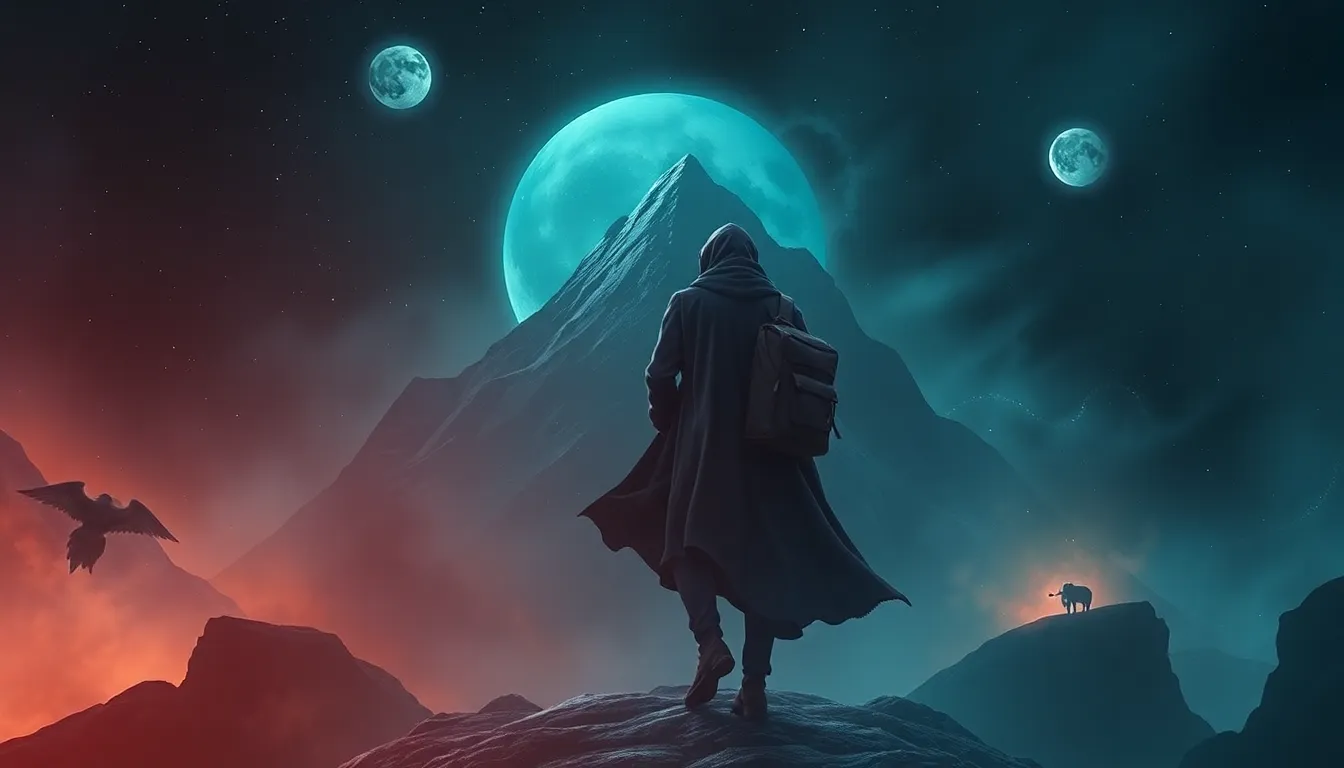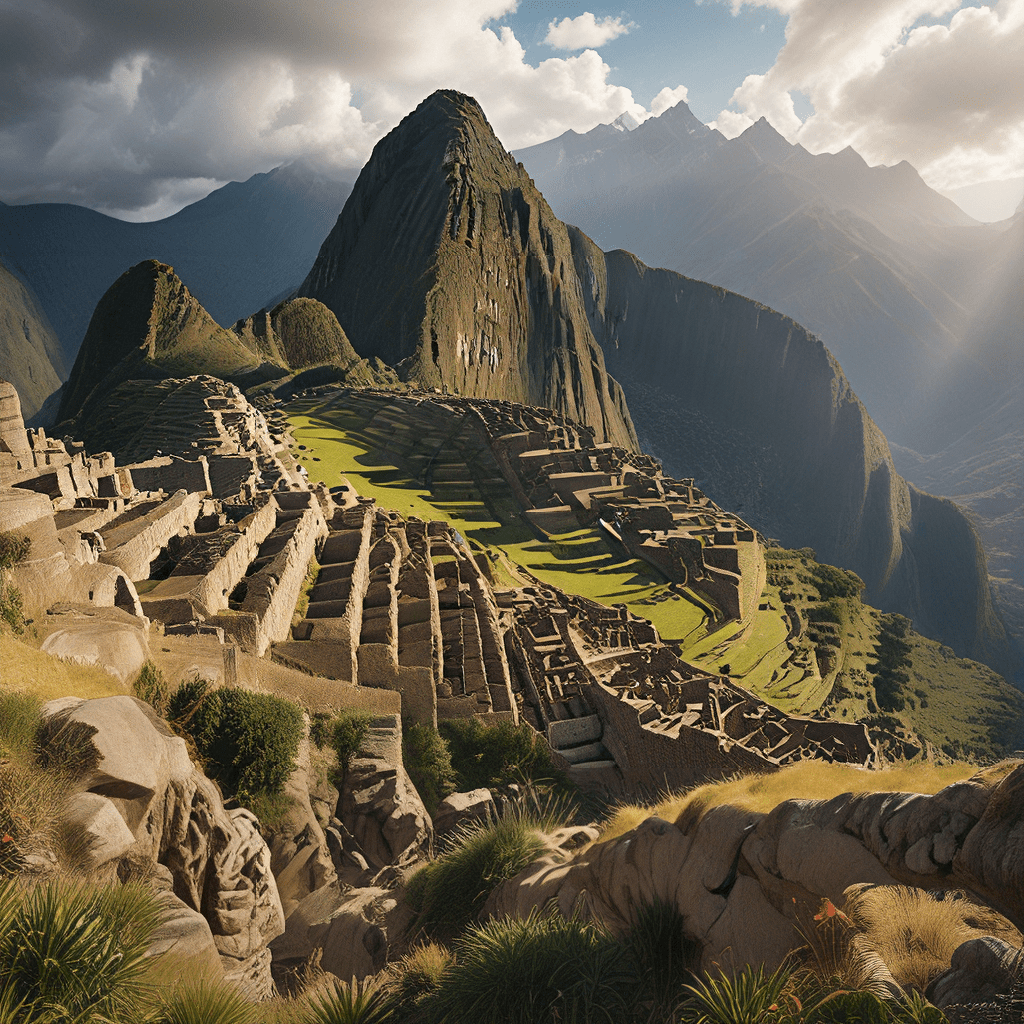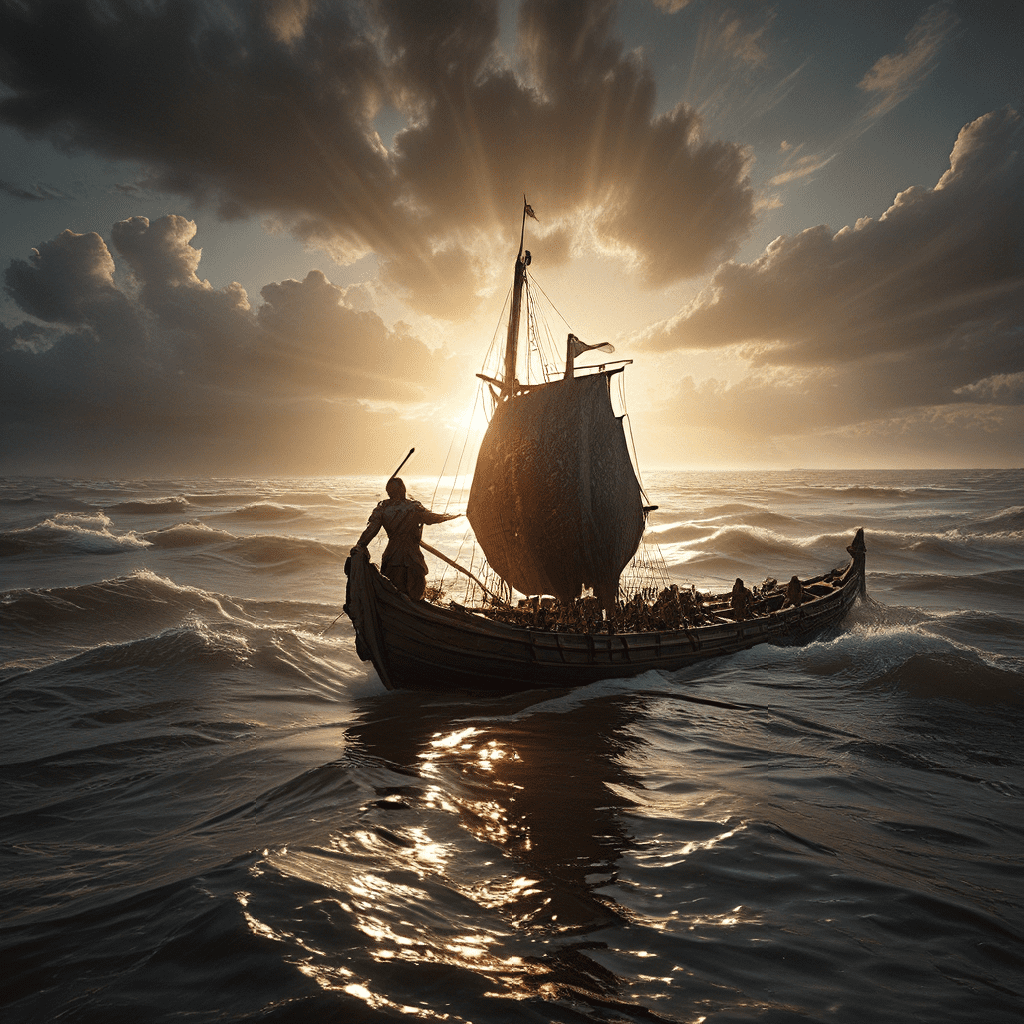The Journey of the Timeless Traveler: Myths of Ageless Adventures
I. Introduction: The Allure of Timeless Travel
The concept of a Timeless Traveler captivates the imagination, embodying the desire for exploration beyond the constraints of time. A Timeless Traveler is often characterized by the ability to traverse through different eras, witnessing the unfolding of history and the depths of culture. This idea resonates deeply within our collective consciousness, as we often yearn for experiences that transcend the ordinary.
Myths play a crucial role in shaping cultural narratives, offering a lens through which societies interpret their existence and aspirations. These tales not only reflect human ideals but also provide insights into our understanding of time, mortality, and adventure. In this article, we will explore the origins, significance, and contemporary interpretations of timeless travel myths, delving into the rich tapestry of human thought and creativity.
II. Historical Context: The Origins of Timeless Travel Myths
To understand the allure of the Timeless Traveler, we must first examine the historical context surrounding these myths. Ancient civilizations often contemplated the nature of time and immortality, crafting narratives that explored these profound themes.
A. Ancient civilizations and their views on time and immortality
From the Egyptians’ fixation on the afterlife to the Greeks’ philosophical inquiries into existence, ancient cultures devised intricate myths that reflected their understanding of time. The belief in an eternal soul or divine beings who could manipulate time was prevalent across various societies.
B. The role of mythology in understanding the cosmos
Mythology served as a means for early humans to make sense of the cosmos, offering explanations for natural phenomena and human experiences. Through tales of gods and heroes, they navigated the complexities of life, death, and the passage of time.
C. Examples of early timeless travelers in folklore
- The Sumerian hero Gilgamesh, who sought eternal life.
- The Hindu god Vishnu, who incarnates in various forms across ages.
- The Celtic figure of Tír na nÓg, a land of eternal youth.
III. Iconic Timeless Travelers in Mythology
Throughout history, certain figures have emerged as iconic representations of timeless travel, each embodying unique aspects of this fascinating concept.
A. The Epic of Gilgamesh: The quest for eternal life
In one of the oldest known literary works, the Epic of Gilgamesh, the titular king embarks on a perilous journey to discover the secret of eternal life. His quest illustrates the human struggle against mortality and the ultimate acceptance of one’s fate.
B. Greek legends: Odysseus and the concept of timelessness
Odysseus, the hero of Homer’s “The Odyssey,” exemplifies the timeless traveler through his long and arduous journey home after the Trojan War. His adventures blur the lines between reality and myth, emphasizing the fluidity of time in human experience.
C. Norse mythology: The journey of Odin and the cycle of rebirth
Odin, the all-father of Norse mythology, is depicted as a seeker of knowledge and wisdom, traveling through different realms. His journeys reflect the cyclical nature of existence, where death leads to rebirth and renewal.
IV. The Concept of Agelessness in Different Cultures
The idea of agelessness manifests differently across cultures, revealing diverse beliefs about life, death, and the universe.
A. Eastern philosophies: Reincarnation and the eternal soul
In many Eastern philosophies, such as Hinduism and Buddhism, the concept of reincarnation embodies the belief in an eternal soul that undergoes a cycle of birth, death, and rebirth. This cyclical view of time contrasts sharply with linear perspectives prevalent in the West.
B. Western tales: The Fountain of Youth and its impact
The legend of the Fountain of Youth, sought by explorers like Ponce de León, symbolizes the Western fascination with agelessness and the desire to escape the inevitability of aging. This myth highlights the cultural obsession with preserving youth and vitality.
C. Indigenous stories of time and cyclical existence
Many Indigenous cultures view time as cyclical, with stories passed down through generations that emphasize the interconnectedness of all beings. These narratives often reflect a deep respect for nature and the rhythms of the earth.
V. Modern Interpretations of Timeless Travel
As society evolves, so too do interpretations of timeless travel, particularly through literature and film.
A. Time travel in literature and film: A new lens on ancient myths
Modern narratives often incorporate time travel as a central theme, allowing characters to explore historical events and confront their significance. Works like “The Time Machine” by H.G. Wells and films like “Back to the Future” reimagine timeless travel, blending it with contemporary issues.
B. The influence of science fiction on perceptions of time
Science fiction has played a pivotal role in reshaping our understanding of time, introducing concepts like parallel universes and alternate timelines. These ideas challenge traditional notions of linear time and provoke thought about the nature of reality.
C. How modern technology is reshaping our understanding of time and travel
Advancements in technology, such as virtual reality and artificial intelligence, are transforming the way we experience time and travel. These tools allow individuals to explore historical events and cultures in immersive ways, blurring the lines between past and present.
VI. Psychological Aspects: The Desire for Ageless Adventures
The fascination with timeless travel is deeply rooted in psychological desires and needs.
A. The human fascination with immortality and adventure
Humans are inherently drawn to the idea of immortality, seeking ways to leave a lasting impact on the world. The thrill of adventure offers a sense of excitement and purpose, compelling individuals to explore the unknown.
B. Psychological theories behind the appeal of timeless travel myths
Psychological theories, such as Carl Jung’s archetypes, suggest that timeless travel myths resonate with universal human experiences and aspirations. These narratives provide a framework for individuals to understand their own journeys and identities.
C. The impact of these myths on personal identity and legacy
Timeless travel myths often inspire individuals to reflect on their own lives, shaping their identities and influencing their aspirations for legacy. The notion of being part of something greater than oneself is a powerful motivator in human behavior.
VII. The Role of Nature and Environment in Timeless Myths
Nature often plays a significant role in the narratives surrounding timeless travel, symbolizing eternity and the cycles of life.
A. Sacred landscapes and their association with timelessness
Many myths are rooted in sacred landscapes that evoke a sense of the eternal. Mountains, rivers, and ancient trees often serve as backdrops for timeless adventures, representing the connection between humanity and the divine.
B. The connection between nature and the concept of eternal cycles
The changing seasons and natural cycles are frequently woven into myths, reinforcing the idea of rebirth and renewal. These cycles mirror the human experience, emphasizing the interconnectedness of all life.
C. Case studies: Locations famed for their ageless qualities
- The ancient city of Machu Picchu, a site steeped in history and mystery.
- The mystical Stonehenge, aligned with celestial events and ancient rituals.
- The serene landscapes of the Japanese countryside, embodying timeless beauty.
VIII. The Influence of Timeless Travel on Art and Literature
Art and literature have long been influenced by the concept of timeless travel, reflecting humanity’s quest for understanding and meaning.
A. Artistic interpretations of timeless travelers throughout history
Artists have frequently depicted timeless travelers in various forms, from classical sculptures to modern paintings. These representations often explore themes of adventure, exploration, and the quest for knowledge.
B. Literature’s reflection of the ageless adventure theme
Numerous literary works encapsulate the essence of timeless travel, weaving intricate narratives that draw readers into worlds beyond their own. Classics like “A Wrinkle in Time” and contemporary works continue to explore this theme.
C. Analyzing key works inspired by timeless travel myths
Key literary and artistic works can be analyzed for their portrayal of timeless travel, examining how they reflect societal values and human desires. These analyses reveal the enduring nature of such myths throughout history.
IX. Contemporary Issues: The Search for Meaning in a Timeless World
In today’s fast-paced world, the search for meaning and connection remains ever-present, often reflected in our fascination with timeless travel.
A. The impact of modern life on



